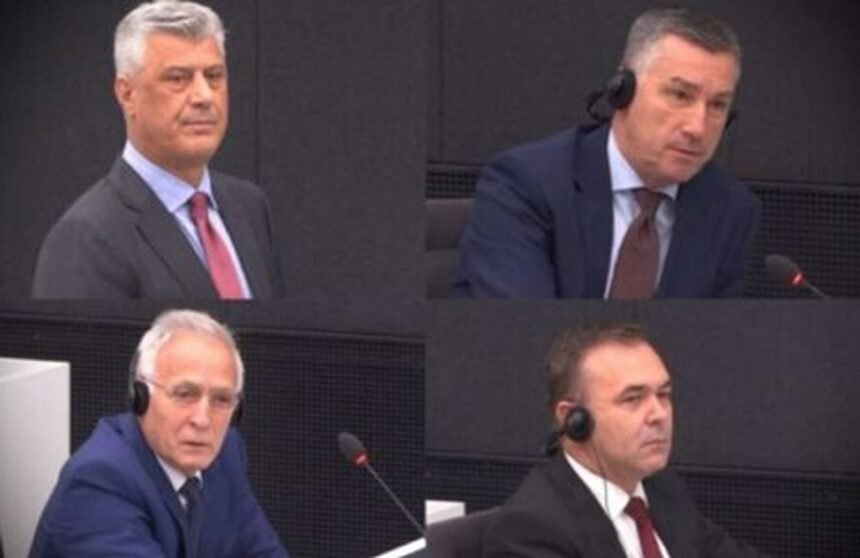Former Dutch Ambassador to Kosovo, Robert Bosch, stated that former leaders of the Kosovo Liberation Army (UÇK) — Hashim Thaçi, Kadri Veseli, Jakup Krasniqi, and Rexhep Selimi are expected to be acquitted.
In an interview, Bosch emphasized that the trial against the former UÇK leaders has been slow and overly prolonged.
He also discussed Kosovo’s relations with international actors, noting that the political situation has changed and that the lack of a functioning government is causing significant consequences.
Regarding the testimony of former NATO Supreme Allied Commander Wesley Clark in The Hague, Bosch said it will align with other statements, asserting that there was no hierarchical organization within the UÇK.
“Clark has not given his testimony yet, but I am certain what it will entail. He will likely repeat what others have stated: that within the UÇK there was no hierarchical, top-down or centralized organization. The UÇK was a decentralized organization. He will certainly confirm this, as he would naturally not contradict his colleagues. In fact, he was usually my source of information when I participated in updates,” Bosch said.
“Although the process has been slow, they are now attempting to finalize it with the prosecution witnesses. From what I know, this phase should conclude by the end of this month, with a verdict expected next year. As I have said before, I believe the verdict will result in the acquittal of all the accused,” he added.
Bosch also commented on the political deadlock in Kosovo, expressing surprise over the repeated 56 nominations of Albulena Haxhiu for parliament speaker.
“It’s difficult to explain precisely, but the situation was certainly unusual. It was extraordinary for a candidate to be proposed 56 times despite knowing she would not be elected. Why continue a process that leads nowhere? No one can claim this is not strange. Eventually, the matter was sent to the Constitutional Court to confirm that it cannot be repeated indefinitely,” Bosch said.
He further questioned why the case was not resolved sooner, stressing that the situation is harmful to the country because many processes cannot proceed.
“I’ve also heard from businesspeople who say they are waiting for contracts, but no one is authorized to sign them because the government is only acting in a caretaker capacity and lacks decision-making authority. This differs from the Netherlands, for example, where caretaker governments can still approve many decisions. Here, for reasons I don’t understand, processes have been completely blocked,” Bosch explained.
Regarding relations between acting Prime Minister Albin Kurti and international actors, Bosch remained cautious but noted that cooperation in Kosovo is lacking.
“I don’t know what to say about Kurti’s relations with the international community. In Kosovo, I see many people not working together, which is certainly bad. Previously, Kosovo was considered an example because people were more courteous. But this seems to have changed somewhat; people have started behaving poorly, not as badly as in Albania, but still. One should avoid the situation where every action by the opposition is treated as a crime,” Bosch concluded.







